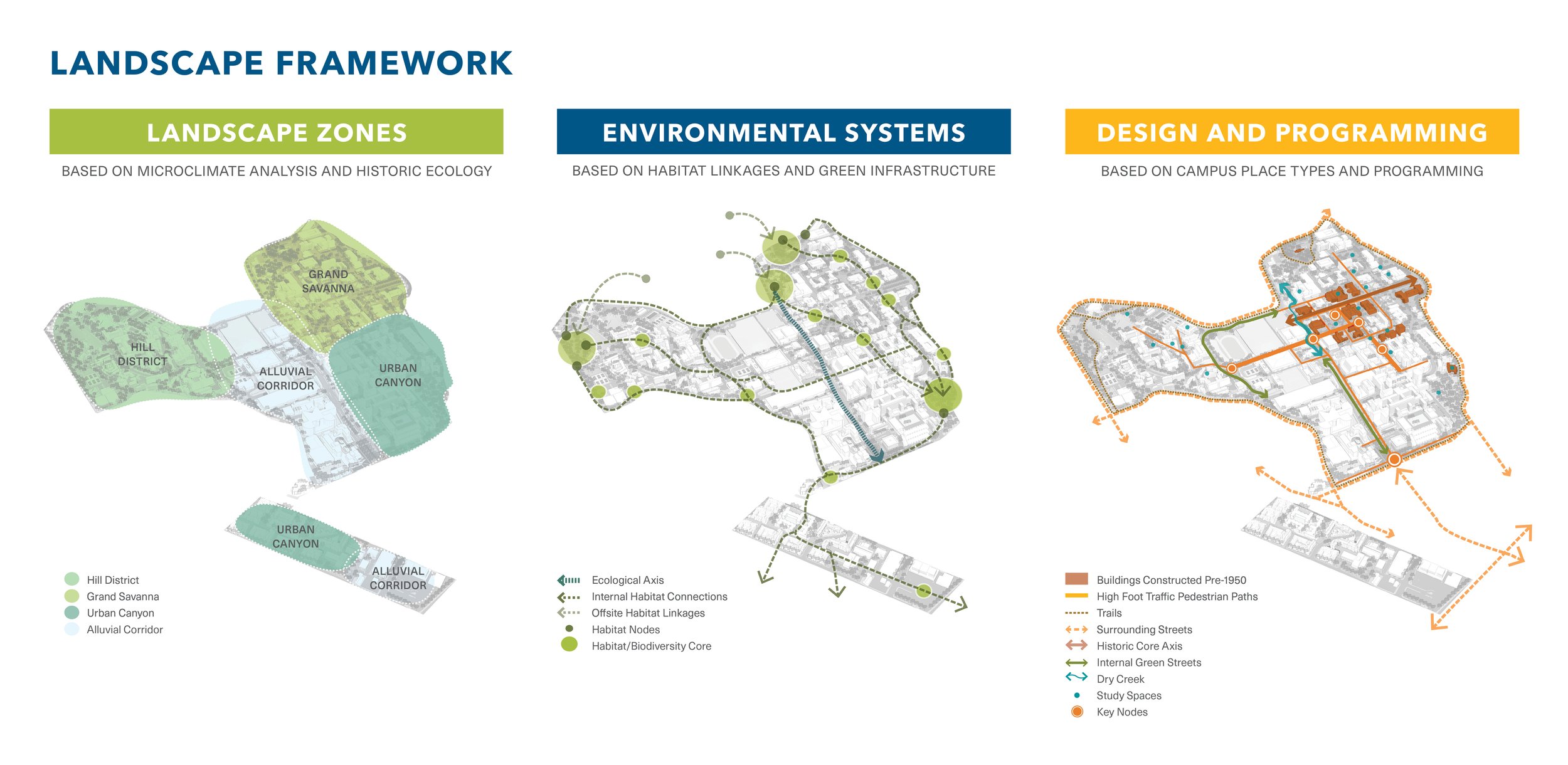The Resilient Campus: Historic Ecology and Water Conservation at UCLA
Saturday, December 6
10:00 AM - 12:30 PM
Led by Julia Prince (Associate, Design Workshop), Nurit Katz (Chief Sustainability Officer, UCLA and Commissioner, Los Angeles Department of Water and Power), Peter Hendrickson (Associate Vice Chancellor Design and Construction, UCLA Capital Programs), The Landscape and Grounds Team (UCLA Facilities), Isaac Brown (Senior Scientist, Stillwater Sciences), and more.
ABSTRACT
There is a perception in the U.S. of what a college campus should look like that is based on the Beaux-Arts-influenced, verdant campuses of the East Coast. Campuses also have a reputation as hubs for innovation that can lead revolutionary climate initiatives and catalyze cultural shifts through the manifestation of their built environments. The UCLA Landscape Framework Plan was tasked with reimagining the iconic campus landscape on the water-scarce West Coast.
Years of ecological and cultural influences shaped the campus and created classical landscapes representing a park-like setting that are not always appropriate for the local climate. Currently, much of the campus land is largely occupied by water-demanding turf and exotic species. Constrained by its fixed physical footprint, the campus also struggles to accommodate an increasing student population. The UCLA Landscape Framework Plan envisions the campus for years to come in the face of a growing population with evolving demographics needs, a desire to honor its ecology, historic landscapes and native cultures.
The UCLA Landscape Plan called upon an interdisciplinary team to engage the campus population and guide the transition of the campus toward a resilient future, delivering a 30-year vision with measurable outcomes. It targets 31.4 million gallons of irrigation water saving annually and an overall 65% reduction in turf areas.
Informed by historic ecology and traditional ecological knowledge, the Plan envisions an integrated landscape framework, encompassing three transformative ideas: landscape zones, environmental systems, and design and programming. It charts the course for UCLA to become a model for the next generation of campuses.
UCLA is a microcosm of the extensive environmental and social challenges faced by Los Angeles at large. Th City is positioned to be a pioneer in biodiversity and natural resource stewardship. The UCLA Landscape Framework Plan considers the campus as a laboratory for analyzing regional challenges, testing solutions, and implementing change.
This workshop will begin with a presentation and discussion with the project team followed by a tour of select campus landscapes.
